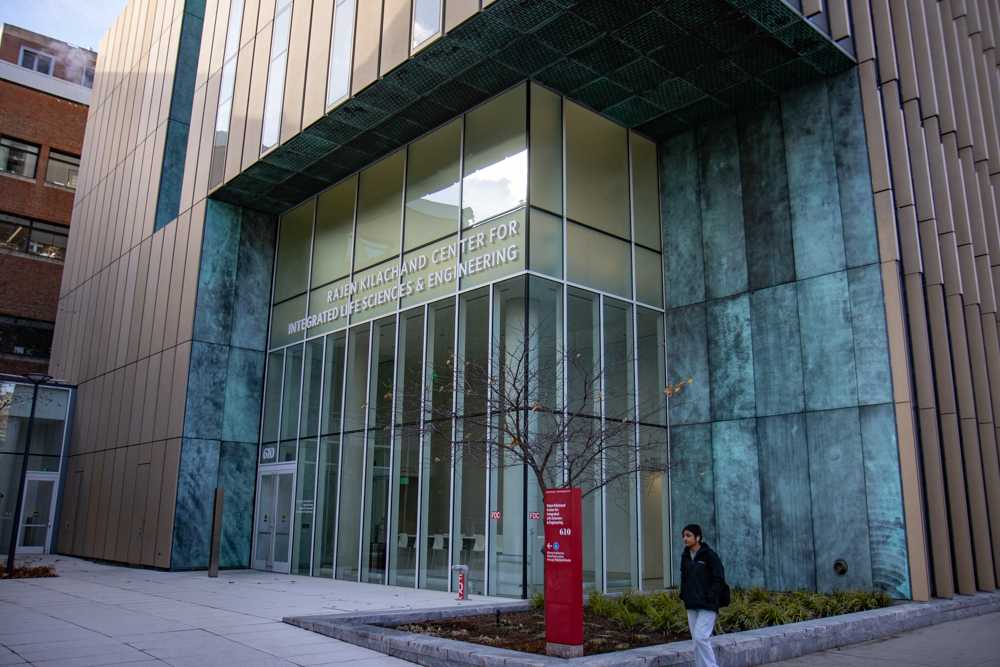Whether you are an armchair chemist or a fledgling physicist, New England has some of the finest science tourism destinations anywhere. When you are stuck in some required philosophy class this summer and those pangs of scientific inquiry kick in, rest assured there is a place for you just a short bus, train or car ride away.
Students who grew up in this area may have visited any number of these spots on field trips in the past but, for adoptive Bostonians, places like the New England Aquarium and the Harvard Natural History Museum offer some exciting fodder for inquiring minds on all kinds of budgets.
DOWNTOWN DESTINATIONS
Science Park, the slice of land in the middle of the Charles River between Boston, Charlestown and Cambridge, is not just a playground for those bright folks over at the Massachusetts Institute of Technology. The park, also namesake of the nearest Green Line stop, is home to the Museum of Science where students of all scholarship levels are welcome.
The museum houses the Hayden Planetarium and the Mugar Omni Theater, which shows films on a five-story-tall, domed IMAX screen. A ticket, on top of general admission, is required to see these shows. Discounted planetarium, IMAX and laser show tickets are available after 6 p.m. on Fridays and Saturdays.
‘It’s kind of a cool older crowd, nighttime destination when the families are not really our primary visitors,’ Mike Morrison, a spokesperson for the museum, said.
The museum’s Colossal Fossil: Triceratops Cliff exhibit is one of the most popular exhibits for college students, Morrison said. The near-complete triceratops skeleton is one of only four on public display in the world.
The summer is a busy time for the museum but weekdays are always less crowded than weekends, Morrison said. The museum is open every day 9 a.m. to 5 p.m. and stays open until 9 p.m. on Fridays. Adult admission for the galleries costs $19.
Visitors to the New England Aquarium can get as near the ocean as possible without getting wet ‘- it sits on the waterfront downtown. The walkway leading up to the aquarium has great views of Boston Harbor, a tank of harbor seals and an intimidating steel-plated IMAX theater.
Penguins, lots of penguins, greet you on the first floor of the aquarium. Deeper into the aquarium, huge tanks of sharks, turtles, marine mammals and an interactive tide pool occupy visitors’ interest.
The aquarium is open everyday from 9 a.m. to 6 or 7 p.m. (on Fridays and Saturdays) and costs $19.95 for adults.
DARWIN, DINOSAURS AND NATURAL HISTORY AT HARVARD
It might not have the same level of recognition as the Museum of Science or the New England Aquarium, but the Harvard Museum of Natural History provides a rich experience for visitors at very reasonable prices. The university’s most visited museum is just a few blocks beyond Harvard Yard and is home to a wide assortment of natural artifacts and exhibits ranging from meteorites and glass flowers to whale skeletons and live scorpions, museum spokeswoman Blue Magruder said.
‘Students who visit the Harvard Museum of Natural History are amazed at the specimens of extinct and extant species, at the live animals, at the photography and at the combination of 19 and 21 century exhibits,’ museum executive director Elisabeth Werby said.
The museum features rooms full of taxidermy animals from all over the world. The Hall of Mammals features hundreds of living and extinct species, and the world’s only mounted skeleton of a Kronosaurus, a prehistoric marine reptile, hangs from the ceiling.
The museum is perhaps best known for its collection of glass flowers,e created as a teaching tool. They are extremely accurate floral replicas made from glass. The collection includes some 3,000 examples created from 1886 to 1936 by Dresden-based glass artisans Leopold and Rudolph Blaschka, Magruder said.
For price-conscious consumers ‘- or broke students ‘- the best way in to HMNH is to have a friend at Harvard. Harvard students always have free admission and can bring one guest at no charge.
But not everyone has a friend in the Yard, so there are other ways of saving this summer. There is always a $7 student rate and every Sunday morning from 9 a.m. to noon, Massachusetts residents can get in free. This summer there will also be three half-price admission nights: June 18, July 16 and August 20. Each Summer Night at the Museum will feature film screenings, conversations with scientists and tours from 5 to 8 p.m. The museum is open every day from 9 a.m. to 5 p.m.
‘Whether it’s the 42-foot-long Kronosaurus or the behind-the-scenes videos of research in the field, there’s something for everyone, so it’s a great place to meet up with friends,’ Werby said.
Just opened this month, the newest permanent exhibit, ‘Evolution,’ features a history of modern biology’s most important theory. ‘Evolution’ displays some of the species that first got Charles Darwin thinking about his seminal theory and discuses current evolutionary research now done at Harvard.
BEASTS IN BOSTON
If the aquarium is a trip under the sea accessible via public transportation then the Franklin Park Zoo is the terrestrial equivalent. Located in Franklin Park on the border of Jamaica Plain and Roxbury, the zoo is a quick train and bus ride away.
The morning or late afternoon is the best time to see the animals in action because the animals tend to be more sluggish during the hot midday hours. Adult tickets cost $12 but the zoo offers half price tickets from 10 a.m. to noon on the first Saturday of every month.
SEEING SEA RESEARCH AT THE SHORE
If you could go for a little intellectual stimulation before baking in the sun at the beach this summer, the world-renowned Woods Hole Oceanographic Institution has tours and exhibits open to people of all ages.
The institution located in Falmouth at the beginning of Cape Cod, is one of the world’s premier oceanographic research facilities and has a small fleet of its own seafaring research vessels. During the summer months, visitors can check out the Ocean Science Exhibit Center to learn about the research and the methods that the institution uses. There is no admission fee, just a requested donation. Woods Hole also offers free walking tours around the grounds in July and August on weekdays.
The Ocean Science Exhibit Center is open Monday through Saturday from 10 a.m. to 4:30 p.m. and is about an hour-and-a-half drive from Boston.
Many of these places have special programs throughout the summer and their respective websites are the best resources for more information.
























































































































